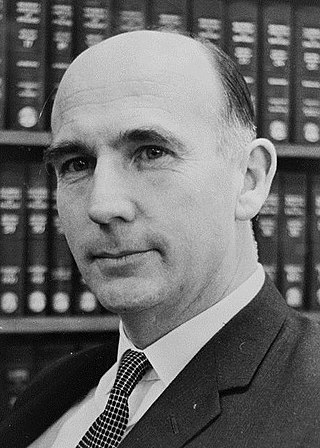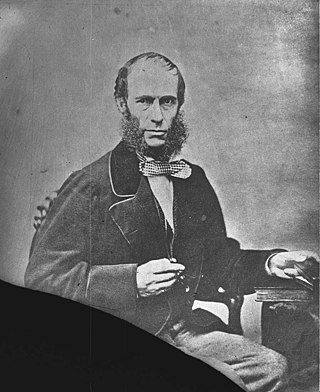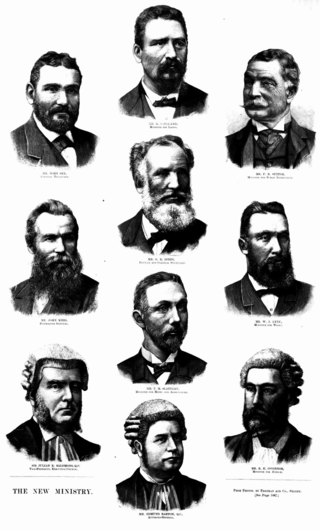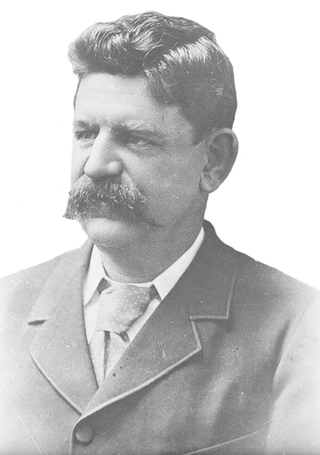Related Research Articles

The prime minister of Australia is the head of government of the Commonwealth of Australia. The prime minister heads the executive branch of the federal government of Australia and is accountable to federal parliament under the principles of responsible government. The prime minister is the chair of the federal cabinet and the national cabinet and a member of the federal executive council. The current prime minister is Anthony Albanese of the Australian Labor Party, who assumed the office on 23 May 2022.

Sir Billy Mackie Snedden, was an Australian politician who served as the leader of the Liberal Party from 1972 to 1975. He was also a cabinet minister from 1964 to 1972, and Speaker of the House of Representatives from 1976 to 1983.

Sir Robert Randolph Garran was an Australian lawyer who became "Australia's first public servant" – the first federal government employee after the federation of the Australian colonies. He served as the departmental secretary of the Attorney-General's Department from 1901 to 1932, and after 1916 also held the position of Solicitor-General of Australia.
The Solicitor-General of Australia is the country's second highest-ranking law officer, after the Attorney-General for Australia. The position is often known as the Commonwealth Solicitor-General in order to distinguish it from the state solicitors-general. The current officeholder is Stephen Donaghue, who took office on 16 January 2017 following the resignation of Justin Gleeson.

Sir Charles Powers was an Australian politician and judge who served as Justice of the High Court of Australia from 1913 to 1929.
The reserved powers doctrine was a principle used by the inaugural High Court of Australia in the interpretation of the Constitution of Australia, that emphasised the context of the Constitution, drawing on principles of federalism, what the Court saw as the compact between the newly formed Commonwealth and the former colonies, particularly the compromises that informed the text of the constitution. The doctrine involved a restrictive approach to the interpretation of the specific powers of the Federal Parliament to preserve the powers that were intended to be left to the States. The doctrine was challenged by the new appointments to the Court in 1906 and was ultimately abandoned by the High Court in 1920 in the Engineers' Case, replaced by an approach to interpretation that emphasised the text rather than the context of the Constitution.

The Attorney-General's Department, also known as the Department of the Attorney-General or AG’s Department, is the national law enforcement and justice department of the federal government of the Commonwealth of Australia. The attorney-general’s department is responsible for the enforcement and compliance of federal law, the administration of justice and the oversight of industrial relations affairs. The department oversees various agencies including the Australian Federal Police (AFP), the national Human Rights Commission (AHRC) and the Commonwealth Director of Public Prosecutions.

Harry Frederick Ernest "Fred" Whitlam was Australia's Crown Solicitor from 1936 to 1949, and a pioneer of international human rights law in Australia. He was the father of Prime Minister Gough Whitlam, and had a great influence on his son's values and interests.

Sir Henry Arthur Winneke, was a Chief Justice of Victoria and the 21st Governor of Victoria, from 1974 to 1982.
Lieutenant general is the second-highest active rank of the Australian Army. It was created as a direct equivalent of the British military rank of lieutenant general, and is considered a three-star rank.

Robert James Ellicott, was an Australian barrister, politician and judge. He served as Solicitor-General of Australia (1969–1973) before entering the House of Representatives at the 1974 federal election as a member of the Liberal Party. He held senior ministerial office in the Fraser government, serving as Attorney-General (1975–1977), Minister for Home Affairs (1977–1980), the Capital Territory (1977–1980), and Home Affairs and the Environment (1980–1981). He retired from politics to be appointed to the Federal Court of Australia, serving as a judge from 1981 to 1983.

Sir John Bayley Darvall was an Australian barrister, politician and beneficiary of slavery. He was a member of the New South Wales Legislative Council between 1844 and 1856 and again between 1861 and 1863. He was also a member of the New South Wales Legislative Assembly for three periods between 1856 and 1865. He held the positions of Solicitor General and Attorney General in a number of short-lived colonial governments.
The Solicitor-General of Victoria, known informally as the Solicitor-General, is the state's Second Law Officer and the deputy of the Attorney-General. The Solicitor-General acts alongside the Crown Advocate and Crown Solicitor, and serves as one of the legal and constitutional advisers of the Crown and its government in the Australian state of Victoria.

The third Dibbs ministry, the 27th ministry of the Colony of New South Wales, was led by Sir George Dibbs, leader of the Protectionist Party, following the 1891 New South Wales election, which saw the Labour Party win seats in the New South Wales Legislative Assembly and the balance of power. With no party having a majority, Sir Henry Parkes held on as Premier until October 1891 when he lost a vote in the Legislative Assembly, causing Parkes to resign as Premier and leader of the Free Trade Party. Dibbs formed the ministry on 23 October 1891, with Labour support, and comprised 10 ministers.

The McGowen ministry was the 34th ministry of the New South Wales Government, and was led by the 18th Premier, James McGowen. This ministry marks the first Labor ministry in the state of New South Wales.
The New South Wales Crown Solicitor's Office (CSO) is an executive government agency of the New South Wales Department of Justice in Australia that has the role of providing legal services to the government, its agencies, and its statutory authorities. The Office practices in twelve areas of law, namely administrative law, child protection law, commercial law, community law, constitutional law, coronial law and inquiries, criminal law, employment law, government law, native title law, property law, and tort law. The Office frequently instructs barristers with regard to civil matters.

Solicitor General for New South Wales, known informally as the Solicitor General, is one of the Law Officers of the Crown, and the deputy of the Attorney General. They can exercise the powers of the Attorney General in the Attorney General's absence. The Solicitor General acts alongside the Crown Advocate, and Crown Solicitor, and serves as one of the legal and constitutional advisers of the Crown and its government in the Australian state of New South Wales.

The Minister for Youth Justice, formerly Minister for Juvenile Justice, is a ministry in the administration of New South Wales. The position supports the Attorney General and has occasionally been held concurrently with that office.
Keith Cameron Waugh was an Australian Commonwealth crown solicitor, soldier and public servant.
References
- ↑ Forster, Colin. "Powers, Sir Charles (1853–1939)". Australian Dictionary of Biography . National Centre of Biography, Australian National University. ISSN 1833-7538 . Retrieved 9 July 2013.
- ↑ Attorney General's Department, CASTLE Gordon Harwood
- ↑ Attorney General's Department, SHARWOOD William Henry
- ↑ Attorney General's Department, WHITLAM Harry Frederick Ernest (Fred)
- ↑ Creswell, C.C. "Waugh, Keith Cameron (1886–1974)". Australian Dictionary of Biography . National Centre of Biography, Australian National University. ISSN 1833-7538 . Retrieved 6 May 2014.
- ↑ Farewell speech by the Senior Vice-Chairman of the Victorian Bar Council on the occasion of the retirement of Master Charles Wheeler from the Supreme Court of Victoria Archived March 4, 2016, at the Wayback Machine
- ↑ Obituary - Harold Edward Renfree, The Canberra Times, 1 February 1989